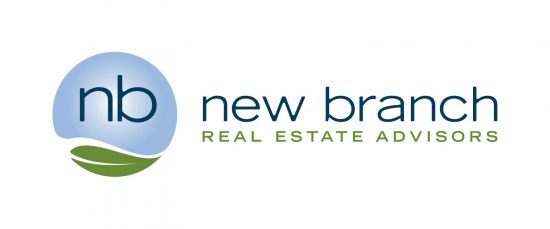Investing in Commercial Real Estate: Benefits, Risks, and Strategies
Investing in commercial real estate can be a profitable way to diversify your portfolio and build long-term wealth. Commercial real estate refers to any property used for business purposes, including office buildings, retail spaces, industrial properties, and multifamily properties. In this article, we’ll discuss the benefits and risks of investing in commercial real estate, as well as strategies for getting started.
Types of Commercial Real Estate
Before we dive into the benefits and risks of commercial real estate investing, it’s important to understand the different types of properties that fall under this category.
Office Buildings
Office buildings are commercial properties used for business operations. These can range from small, single-tenant buildings to large skyscrapers with multiple tenants.
Retail Spaces
Retail spaces include properties such as shopping centers, strip malls, and standalone stores.
Industrial Properties
Industrial properties include warehouses, manufacturing facilities, and distribution centers. They are frequently leased to businesses for storage and manufacturing purposes.
Multifamily Properties
Multifamily properties are residential properties with multiple units, such as apartment complexes and townhomes.
Benefits of Investing in Commercial Real Estate
There are several benefits to investing in commercial real estate, including:
Steady Cash Flow
One of the main benefits of commercial real estate investing is the steady cash flow it can provide. Commercial leases are typically longer-term than residential leases, meaning you can count on a consistent stream of rental income over an extended period of time.
Long-Term Appreciation
In addition to steady cash flow, commercial real estate also has the potential for long-term appreciation. As the property increases in value over time, you can sell it for a profit or refinance it to access equity.
Tax Benefits
There are several tax benefits to investing in commercial real estate, including depreciation, which allows you to deduct the cost of the property over time, and deductions for expenses such as mortgage interest and property taxes.
Portfolio Diversification
Commercial real estate can be a valuable way to diversify your investment portfolio. Unlike stocks and bonds, real estate is a tangible asset that can provide a hedge against inflation and market volatility.
Risks of Investing in Commercial Real Estate
While commercial real estate can offer numerous benefits, like any investment, there are also risks to consider before investing. These risks may include:
Market Fluctuations
The commercial real estate market can be volatile and subject to fluctuations, especially during economic downturns. Changes in supply and demand, interest rates, and market conditions can all impact the value of your investment.
Tenant Turnover
Commercial properties rely on tenants to generate income, and tenant turnover can lead to periods of vacancy and lost income. It’s important to have a solid tenant screening process in place to attract and retain quality tenants. Hiring a qualified Leasing Agent can help to lower this risk significantly.
Property Maintenance and Management
Owning and managing a commercial property can be time-consuming and costly. Property maintenance and repairs, as well as tenant relations and property management, can all eat into your bottom line. Hiring a qualified Property Manager can help to lower this risk and will serve to keep your asset in good repair and condition.
Financing Risks
Commercial real estate investments often require significant capital and financing, which can come with higher interest rates and greater risks. It’s important to have a solid financial plan in place before investing in commercial real estate.
Strategies for Investing in Commercial Real Estate
There are several strategies for investing in commercial real estate, each with its own benefits and risks. Some common strategies include:
Direct Ownership
Direct ownership involves purchasing and managing a commercial property on your own. This can provide greater control over the property and the potential for higher returns, but also comes with greater risks and responsibilities.
Real Estate Investment Trusts (REITs)
REITs are investment vehicles that own and manage portfolios of commercial properties. Investing in a REIT can provide exposure to the commercial real estate market without the need for direct ownership or management.
Private Equity Funds
Private equity funds pool capital from multiple investors to purchase and manage commercial properties. This can provide greater diversification and access to larger, higher-quality properties, but also comes with higher fees and minimum investment requirements.
Crowdfunding Platforms
Crowdfunding platforms allow individual investors to pool their resources and invest in commercial properties. This can provide greater accessibility and lower minimum investment requirements, but also comes with greater risks and limited control over the investment.
Due Diligence in Commercial Real Estate Investing
Before investing in commercial real estate, it’s important to conduct thorough due diligence to ensure you’re making an informed decision. This may include:
Market Research
Researching the local real estate market and economic conditions can help you determine whether a particular property is a good investment.
Property Analysis
Analyzing the physical and operational aspects of the property, such as its location, condition, and tenant base, can help you assess its potential for long-term success.
Financial Analysis
Evaluating the financial performance of the property, including its income, expenses, and potential returns, can help you determine whether it’s a profitable investment.
Legal Considerations
Consulting with legal and financial professionals can help you navigate the complex legal and financial considerations involved in commercial real estate investing, such as tax implications and zoning regulations.
Conclusion
Investing in commercial real estate can be a lucrative way to diversify your portfolio and build long-term wealth. However, it’s important to understand the benefits and risks involved, and to conduct thorough due diligence before making any investment decisions.
